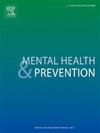Multi-session virtual reality relaxation for mental health staff: a feasibility and acceptability study
IF 2.4
Q2 Medicine
引用次数: 0
Abstract
Introduction
Mental health staff may experience high levels of psychological stress, burnout, and poor wellbeing.
Aim
This study explores the feasibility and acceptability of implementing a course of virtual reality (VR) relaxation sessions for mental health professionals, to improve their mental wellbeing.
Methods
Mental health staff were recruited to 5-weeks of VR relaxation. Recruitment numbers, completion and attendance rates were collected, and satisfaction with each session was measured. Mental wellbeing parameters were assessed following a single session, and over the course of five sessions.
Results
38 staff were recruited. Most participants were nurses and support workers (n = 22). Participants completed a mean of 3.93 ± 1.51 sessions. Mean satisfaction across all sessions was 8.26/10 ± 1.64. From baseline to 5-weeks there were improvements in subjective wellbeing, perceived stress, perceived worry, burnout, and daytime sleep dysfunction. There were improvements in wellbeing following a single session of VR.
Discussion
It is feasible and acceptable to implement VR relaxation within workplace settings for healthcare professionals. Implementation considerations are indicated such as flexible timetabling and exploring self-help models of delivery to maximise attendance.
Implications for Practice
The research supports the development of a large-scale trial of VR relaxation to determine its efficacy for staff wellbeing.
精神卫生人员多时段虚拟现实放松:可行性和可接受性研究
心理健康工作人员可能会经历高度的心理压力、倦怠和健康状况不佳。目的探讨虚拟现实(VR)放松课程对心理健康专业人员的可行性和可接受性,以改善他们的心理健康。方法招募心理卫生人员进行为期5周的VR放松。收集招募人数、完成率和出勤率,并测量每个课程的满意度。心理健康参数在一次疗程后和五次疗程后进行评估。结果共招聘工作人员38人。大多数参与者为护士和辅助工作者(n = 22)。参与者平均完成3.93±1.51个疗程。所有疗程的平均满意度为8.26/10±1.64。从基线到5周,主观幸福感、感知压力、感知担忧、倦怠和白天睡眠障碍都有所改善。单次虚拟现实治疗后,幸福感有所改善。在医疗保健专业人员的工作场所环境中实施VR放松是可行和可接受的。指出了实施方面的考虑,如灵活的时间表和探索自助交付模式,以最大限度地提高出勤率。该研究支持开展VR放松的大规模试验,以确定其对员工健康的功效。
本文章由计算机程序翻译,如有差异,请以英文原文为准。
求助全文
约1分钟内获得全文
求助全文
来源期刊

Mental Health and Prevention
Medicine-Psychiatry and Mental Health
CiteScore
2.10
自引率
0.00%
发文量
22
审稿时长
24 days
 求助内容:
求助内容: 应助结果提醒方式:
应助结果提醒方式:


